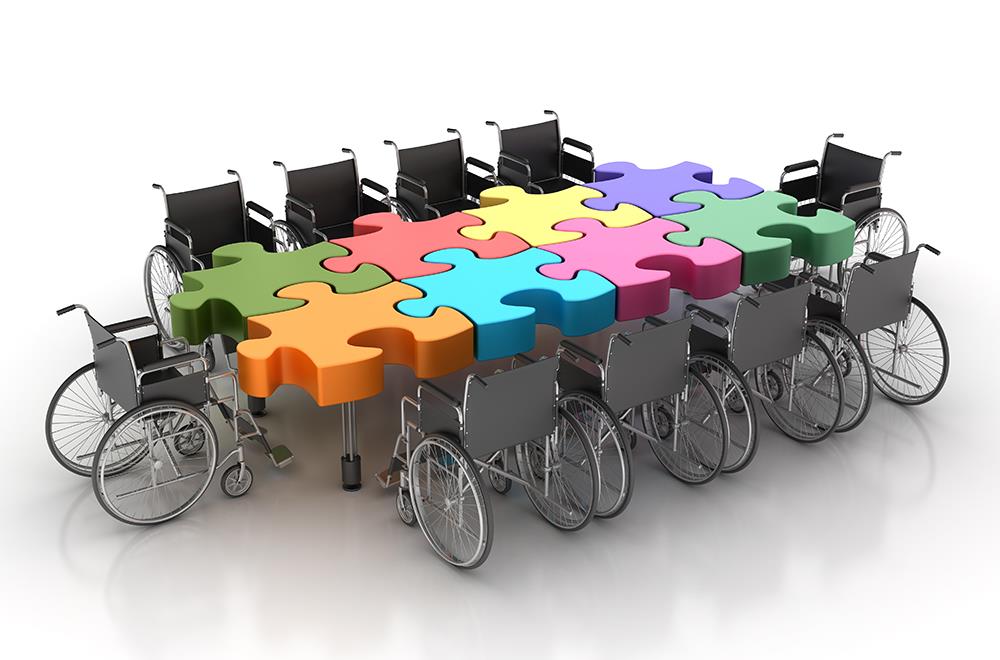by Caroline Casey*
We are six months on from the beginning of the COVID-19 pandemic. Beyond the rollercoaster ride the coronavirus has put the whole world on, it has specifically thrown a spotlight on and sharply exacerbated inequalities globally – significantly impacting progress towards achieving the Sustainable Development Goals (SDGs) by the 2030 deadline.
But it has also awakened a collective empathy across society, as so many came to understand that the isolation and exclusion they were experiencing during social distancing and lockdowns was the daily reality for many. Particularly the 15% of the global population with some form of disability.
Recent findings from The Valuable 500 signatory disability inclusivity and accessibility tracker highlight the impact of COVID-19 on diversity and inclusion. These conclude that 39% of companies are now more aware than ever of the needs of people with disabilities and are accelerating their actions and commitments to disability inclusion and accessibility. Changing perceptions around remote and flexible working, as well as a growing realization of the importance of an inclusive and diverse corporate culture have both been identified as contributing factors for this trend.
Communities came together to support and include the most vulnerable and in need – and businesses stepped forward to play their part. Commendable examples include Sainsbury’s reserving hours for elderly and vulnerable customers, to O2’s UK Zero Rates Data Usage scheme, enabling customers to access important websites, including disability support sites, without tapping into their data allowance.
Now, we need to see these initiatives towards disability inclusion translated into long-term actions across the business supply chain – from company culture and employment to representation in marketing materials and external communications.
However, while there may be a positive picture, the research also highlighted some worrying statistics. While two in three signatories have featured people with disabilities in their marketing communications, only one in 10 routinely do so. Disability inclusion cannot be something businesses address once with one initiative, and then move on from.
It is more imperative than ever that as businesses globally look to regroup and re-evaluate for post-COVID recovery, achieving the SDGs as a collective is firmly embedded within their leadership agendas – and disability inclusion is instrumental in this.
The world has only 10 years left to achieve the goals of the UN’s 2030 Agenda for Sustainable Development established in 2015, but progress is currently not on track to do so.
The Trade and Development report from the UN Conference on Trade and Development (UNCTAD) secretariat has highlighted that the COVID-19 pandemic will in all likelihood “reverse much of the economic and social progress already made” towards achieving the SDGs. The report estimates that economic and social disruptions due to the coronavirus have resulted in approximately $6 million in global trade.
Disability is included in five of the SDGs, including goal 8, promoting inclusive economic growth, full and productive employment allowing persons with disabilities to fully access the job market; and 10, emphasizing the social, economic and political inclusion of persons with disabilities. Additionally, “persons with disabilities” or “disability” are specifically mentioned 11 times throughout the 2030 Agenda for Sustainable Development.
It’s crystal-clear that disability inclusion must not be considered by businesses as just a “nice to have” initiative. In fact, I would go as far as to say it’s critical to future-proofing business’s sustainability and growth. It is also critical to achieving the SDGs holistically. We must consider the bigger picture here.
For example, achieving goal 10 – which includes the political, economic and social inclusion of people with disabilities – doesn’t only mean one less SDG to meet. It means unlocking the talent and potential of a vast community that can significantly contribute to the work being done to meet SDGs across industries globally.
There is reason to be hopeful that businesses are aware of how critical disability inclusion is to achieving a sustainable, inclusive global society for all. The latest data from The Valuable 500 reveals that 86% of businesses surveyed believe that disability inclusion is important to their business strategy. But there is still much work to be done by the business community, and challenges to be overcome when it comes to implementing this in practice.
Disability inclusion is not a tick-box exercise – it must be consistently integrated into day-to-day decisions across the business supply chain as the norm if companies are serious about the business of growth and about fully achieving the SDGs in time.
This could be the decade of disruption – the decade that leaves no one behind. This can only be achieved if we are willing to tear apart what separates us, and see the interconnection of our systems and the intersectionality of humanity.
*Founder and Director, The Valuable 500
**first published in: www.weforum.org




 By: N. Peter Kramer
By: N. Peter Kramer
